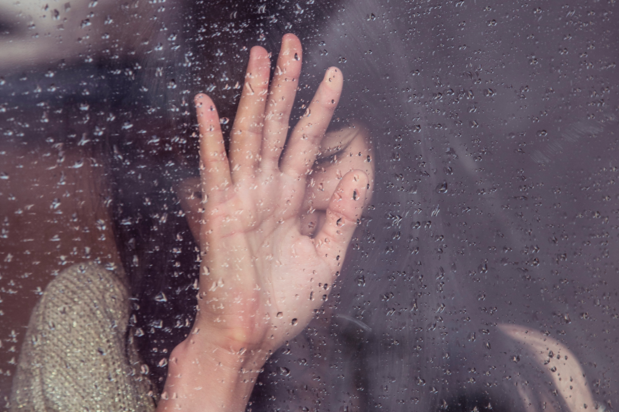We have all heard stories about those who suffer through grave tragedy to become greater people. What happens when we suffer, and what causes this suffering? What can we expect to receive from terrible experiences? Is there a difference between emotional and physical pain?
Here are 4 questions we tend to ask ourselves when we're hurting and how we are gifted a new perspective through each adversity.
1. What Happens When We Suffer?
We become softer, somehow. Our experience humanizes us and we get to see that there are others who are suffering, too. Most often, it is our pact with others on this planet. When you see your suffering and see someone else is also suffering in the same way, quite often it is that common bond that alleviates the pain. You can feel and express compassion and caring, because you both understand this pain, whether it is physical or emotional. Think about the powerful bonds that are created by those who survive a terrible experience together—cancer survivors, a plane crash, a hurricane, etc. They are forever changed and connected by this mutual experience. As time goes on, they often maintain some form of connection with each other because they have a shared understanding, sympathy, and healing story that bonds them.
2. What Causes Suffering?
Most of us suffer in life. This is most frequently caused by longing for something to change. That something can be a financial, physical, spiritual or emotional situation that is not to our liking. Those who are poor often dream of being wealthy, which creates unhappiness and dissatisfaction with their current circumstances. They may use these circumstances to propel themselves to attempt to make lots of money—delving in activities that often go against their morals, like selling drugs, because it seems a quick fix. However, they will remain in suffering as long as they are unable to accept their lives as being exactly the way they are meant to be, for whatever reason.
When we view life as a random experience, with little or no purpose or meaning, we lose touch with our inner guidance and happiness. We become bitter and suffer from our inability to accept life as it is presented. When we are constantly striving to achieve something other than what we have, are or do, it is the source of great unhappiness and discontent. Learning to become satisfied with what IS in our lives at the moment is the root of true contentment and happiness.
Another cause of suffering is living outside of the present moment. The practice of mindfulness, and living in the NOW, gives us the opportunity to be at one with our circumstances as they are—right here, right now. A great deal of anxiety comes from projecting our lives out into the future, instead of allowing things to unfold in the way they are meant. And depression also occurs when we reflect on the past and relive those painful emotions. Living fully in the present moment is a practice that can be learned by anyone, no matter how great their suffering.
3. What Can We Expect to Receive from Terrible Experiences?
We can experience terrible tragedy and loss. Learning to identify what is lost can give us peace. We can learn to mourn and move on to the lessons that are gained from the experience. Loss can be anything that causes pain or suffering, such as a loved one, a job, an idea of who we are that is suddenly shattered, a marriage, a car, an experience of how we live in the world (loss of health, use of a bodily function, etc.), loss of identity (as a mother, wife, daughter, etc.), and many others. As we navigate our loss, we can find comfort with others who have experienced similar losses. This, again, becomes a healing connection that gives us fellowship and a sense of companionship of understanding others.
We also gain ground in other ways, by developing human qualities such as understanding, compassion, caring, emotional availability, kindness, patience and other attributes that can only be gained through human, emotional experience. Our humanity and emotional openness can lead us to become changed in ways that we seldom see as possible before the experience of suffering.
4. Is There a Difference Between Emotional and Physical Pain?
Both can lead us to become reflective. We may be physically immobilized by pain, which leads to more time to reflect on the meaning and value of the experience, our lives and how they unfold, or what we will do if this experience is going to change who we are in the world in some powerful way. Both types of pain may be the result of some kind of loss, such as a physical attribute or a relationship of some kind.
These losses make us reframe our lives and think about ways we can shift our focus and how we have moved and been in the world. The pain is there to help us to navigate a path through the pain, not avoiding it or dwelling in the inevitable feelings of grief and loss. When we can begin to sit with the grief and the feelings we are having, we begin to grow into the new paradigm the pain is creating.
If you or someone you know is suffering from abnormal, complicated or prolonged grief from a loss of any kind, get in touch with a professional who can help you navigate through the pain. Here’s a list of treatment centers that specialize on grief, or you may call 800-891-8171 to get someone to point you in the right direction.








